Meet the 2018 Yale Ciencia Academy Fellows!
Submitted by Mónica Ivelisse Feliú-Mójer on
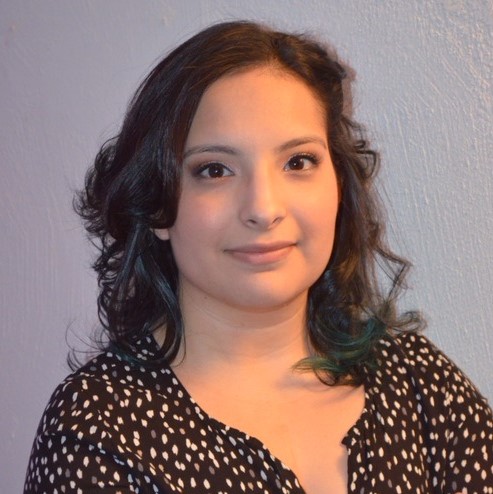 |
Stephanie S. Anguiano-Zarate is a native from the Juarez, Mexico-El Paso, Texas border communities. She holds a BS in clinical laboratory science from the University of Texas at El Paso. As an undergraduate, she participated in research experiences focused on kinesiology and bacterial calcium signaling. She completed a year-long post baccalaureate program at Baylor College of Medicine, Texas where she helped to create a library of tagged genes in Drosophila. Stephanie is now a fourth-year clinical and translational science PhD candidate at the Mayo Clinic Graduate School of Biomedical Sciences. She has been graciously supported by a Mayo Clinic Dean’s fellowship and took part in Mayo’s Initiative for Maximizing Student Development program. Her thesis work in Dr. Michael Barry’s laboratory in the Department of Molecular Medicine focuses on the development of Adenovirus vaccines against emerging pathogens like Ebola and antibiotic-resistant Staphylococcus aureus. In the near future, Stephanie will pursue a career in biomedical writing. |
 |
Marina Armendariz is a third-year doctoral student in the Department of Biobehavioral Health and is also pursuing a minor in demography at The Pennsylvania State University. She earned her bachelor’s degree in psychology with a minor in health science at California State University, Dominguez Hills (CSUDH). Marina is broadly interested in examining health disparities that disproportionately impact racial/ethnic minorities. She is primarily interested in understanding the underpinnings of Latino Health. During her doctoral studies, she has developed an interest in understanding how social, cultural, and geographic factors can influence health outcomes among Latinos such as physiological dysregulation (i.e. via inflammation) as well as chronic disease outcomes. Her most recent project focused on differences in C-reactive protein (CRP), a systemic indicator of inflammation, in middle-aged and older Mexicans. In addition, Marina is currently an Alfred P. Sloan Scholar. Her future professional goals include teaching at an institute where she can work closely with students from underrepresented backgrounds and encourage them to pursue graduate studies. She is passionate about promoting diversity in research and in higher education. |
 |
Kaylee Arnold is a second-year doctoral student at the University of Georgia, Odum School of Ecology in its Interdisciplinary Disease Ecology Across Scales (IDEAS) program. She earned her BS in biology in 2013 at the University of Redlands, CA, where she studied the population genetics of mayflies (Baetis tricaudatus) in the San Bernardino Mountains for her senior thesis. After college, Kaylee returned to her hometown of Oceanside, CA, where she worked as a fish hatchery technician at Hubbs-SeaWorld Research Institute rearing white seabass to help restore the wild population off the coast of California. While working full-time, Kaylee also volunteered weekly with the San Diego Zoo’s Institute for Conservation Research in its Molecular Diagnostics Lab. She then returned to school to earn her M.S. degree in ecology and evolutionary biology at Tulane University in 2016, where she studied bacterial endophyte communities of bald cypress trees. After graduation, she continued on into her current PhD program at the University of Georgia in Athens, GA. Under the advisement of Dr. Nicole Gottdenker, Kaylee is currently studying the gut microbiome of the kissing bug, Rhodnius pallescens, which is the primary Chagas disease vector in Panama. Her overall research interests are understanding the effects of anthropogenic stressors on gut microbiomes of wild animals and how land use change affects pathogen transmission between animals. In addition to research, Kaylee is especially passionate about increasing diversity and inclusion in STEM fields, particularly in ecology. |
 |
|
 |
Denise Buenrostro is a PhD candidate in the Cancer Biology Graduate Program at Vanderbilt University. She was born and raised in Chula Vista, California. While attending Grossmont Community College she was awarded the BRIDGES fellowship that exposes underrepresented minority students to scientific research. Upon transferring to San Diego State University (SDSU), she worked under the supervision of Dr. Paul Paolini investigating the cardiovascular effects of a diabetic drug. In the summer of 2008, Denise was awarded a Summer Undergraduate Research Fellowship (SURF) at UT Southwestern Medical Center where she investigated the astronauts’ risk of lung cancer development after completion of missions through a NASA funded project. In 2009, she received her bachelor of science in biological sciences from SDSU. In 2012, she was admitted into Vanderbilt’s Interdisciplinary Graduate Program and the following summer joined the laboratory of Dr. Julie Sterling investigating tumor-induced bone disease. Her dissertation work has focused on investigating the role of myeloid cells in bone metastases. Denise’s career goal is to be a clinician-scientist working in cancer clinical trials. |
 |
Albert Burgess-Hull is an Advanced Opportunity Fellow at the University of Wisconsin – Madison (UW) and a PhD candidate in the Department of Human Development and Family Studies (HDFS). Albert completed his bachelor’s degree at the University of Washington, where he studied psychology. His research focuses on identifying and describing mechanisms within the social network that influence the development of substance-use and health behaviors. In addition, he is interested in the application and development of advanced quantitative methods to inform behavioral research. In this domain, he is particularly interested in the use of unsupervised clustering methods (e.g., finite mixture modeling) to identify groups within the population that may respond differently to behavioral or pharmacological treatments, or to flag “at-risk” individuals. Albert has received a number of awards and research funding from both regional and national outlets. He is a Bouchet Graduate Honor Society Member (UW-Madison Chapter) and a Social Networks and Health Fellow at Duke University’s Network Analysis Center where he is working with collaborators to examine how marijuana-use spreads within the social network. He has received a National Institute of Health sponsored Mini-Grant from the UW’s Center for Tobacco Research and Intervention and has received multiple awards, including the School of Human Ecology’s (SoHE) Dissertation Award and Summertime Academic Research Awards (STAR) from both SoHE and HDFS. He has published his work in a number of peer-reviewed journals and has presented his research at a both regional and national conferences. |
 |
Victor Hugo Canela is a second-year PhD student at Indiana University School of Medicine in the Department of Anatomy and Cell Biology. Prior to becoming a student in this doctoral program, he earned his bachelor’s degree in molecular and cell biology from California State University Dominguez Hills. He was then a lecturer and adjunct professor at California State University Dominguez Hills and Cerritos college, respectively. His previous research experience includes work with Dr. Christina Wang at Harbor-UCLA Medical Center and Los Angeles Biomedical Research Institute investigating the role of Humanin in the rescue of male germ cells and spermatogenesis. He also completed research with Dr. Reuben Kapur at Indiana University School of Medicine, where he focused on the development of potential therapeutic options for the treatment of acute myeloid leukemia and systemic mastocytosis. He subsequently earned his master’s degree in biology. Victor Hugo’s current research with Dr. James Williams and Dr. Tarek Ashkar involves the investigation and exploration of the renal papillae in the context of kidney stone formation. The goal of Dr. Williams’ and Dr. Ashkar’s labs is to elucidate the cellular mechanisms contributing to the formation of kidney stones, a common disease condition that is still little understood. Aside from biomedical research, Victor Hugo enjoys playing guitar and piano, freehand sketching and long-distance running. Following the completion of his PhD, he plans to teach biology and anatomy at a university and mentor students interested in the field of biomedicine. |
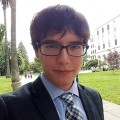 |
Christian Cazares is a second-year neurosciences graduate student at the University of California, San Diego. After graduating from the University of California, Berkeley with a BA in cognitive science, he set off to Philadelphia for two years where he did post-baccalaureate research at the University of Pennsylvania. Currently, as a member of the Gremel Lab, he researches how the brain encodes ongoing, sophisticated motor actions for future, successful execution. To assess this, he implants multi-channel electrodes in different regions of the associative cortico-striatal circuit to record brain activity of freely-moving mice performing a progressive hold down reward task. In the future, he will assess how this brain activity is different in comparison to an animal model of chronic alcohol exposure. As a National Science Foundation Graduate Research Fellowship (NSF-GRFP) recipient, Christian has led workshops on how to write successful research fellowship applications with various campus organizations. In the long-term, Christian will keep pursuing an academic research path, with the goal of managing his own systems neuroscience research lab. A native from Mexicali, Baja California, Mexico, Christian spends his time outside of the lab playing video-games, watching sports, and putting together events for Colors of the Brain, a graduate organization he founded that aims to increase minority representation in the brain sciences. |
 |
|
 |
|
 |
Lauren Edwards is a neuroscience doctoral student at Emory University. She earned her bachelor's degree in neuroscience and cognitive science with a minor in biochemistry from the University of Arizona. As an undergraduate, she was a NIH-MARC trainee, spending several years conducting research on central executive function in children with specific language impairment. Through summer programs, she also participated in neonatal quality control research and cancer research using nanotechnology. For her thesis, Lauren is evaluating neurophysiological changes of motor network connectivity during the stroke recovery process. Her professional goals include attending medical school after graduation and becoming a physician scientist to bridge together her love of patient care with her translational research. |
 |
|
 |
|
 |
Liz J. Hernández Borrero is a PhD student in the Biomedical Sciences Program at The Pennsylvania State University. She obtained her bachelor’s degree in chemistry at The University of Puerto Rico-Río Piedras and a master’s in biomedical sciences at her current institution. To augment her education and seek out new experiences, she participated in the Minority Access to Research Career (MARC) and Research Initiative for Scientific Enhancement (RISE) programs and took advantage of several summer internship opportunities throughout college as an undergraduate. She is interested in translational research of drug discovery and safety. Her thesis work is currently funded by a NIH Diversity Supplement which involves the screening for small molecules that restore the wild-type p53 pathway in tumors with p53 mutations, with the goal of translating these molecules to clinical use. Her overall career goal is to be at the cornerstone of science and business as an independent researcher, focusing on the discovery, development and implementation of novel drug therapies that have the potential to go into the clinics and improve patient health care. |
 |
Imade Imasuen-Williams is a PhD candidate in the Biochemistry and Molecular Biology Department at Indiana University School of Medicine. She joined the Indiana Biomedical Gateway Program for PhD Studies in 2013 and joined the lab of Dr. Murray Korc in 2014, to study pancreatic cancer. Her current research is focused on epithelial to mesenchymal transition (EMT) which aims to identify mechanisms of pancreatic cancer progression and metastasis using genetically engineered mouse models of PDAC. She has identified that TIP30 controls pancreatic cancer metastasis through gene dosage effect, and she is also working with a CDK4/6 inhibitor that she has demonstrated to have an irreversible effect on EMT in pancreatic cancer cells. Imade was awarded the Ingram Scholarship to attend Vanderbilt University, where she received her BA in molecular and cellular biology and Russian language. Imade’s career objective is to define mechanisms of tumor metastasis and identify potential pathways that can be targeted to prevent cancer cell dissemination. She is committed to rigorous science and to help the initiative of recruiting diverse individuals to STEM fields. |
 |
Lauren Kennedy is a PhD candidate in her fourth year in the Department of Translational Biology, Medicine, and Health at Virginia Tech. Originally from Stoneham, Massachusetts, Lauren completed her undergraduate degree at Roanoke College in Salem, Virginia in 2014. She graduated with magna cum laude honors with a bachelor of science in psychology, a minor in creative writing, and a concentration in neuroscience. In her undergraduate years, she was involved in research across a variety of neuroscience-related domains, including molecular synaptic methods and analysis, clinical neuropsychological assessment, and psychophysiological experimental approaches. Lauren’s current research is focused on the acute stress response, and incorporates psychophysiological and cognitive methods. More specifically, she is interested in determining steps we can take to intervene with the acute stress response to prevent negative reactions, like the feeling of being overwhelmed, which can interfere with task performance. One way to intervene with these outcomes that Lauren is particularly interested in is using biofeedback, giving individuals the insight into their current stress levels and offering coping mechanisms to help resolve that stress. The target population for her work is physicians operating in the healthcare setting. Aside from conducting rigorous research, Lauren is passionate about sharing that work with others through various forms of outreach in the community. Upon finishing her doctoral degree, Lauren strives to join the faculty at a liberal-arts university, enabling her to connect with and inspire the next generation of students to engage in research and pursue their scientific goals. |
 |
José E. Liquet y González earned his bachelor's degree in industrial microbiology from the University of Puerto Rico at Mayagüez (UPRM), his native town. Here he developed a curiosity for the biodegrading applications of microbes, and teaching. During his time in the UPRM, he worked in several microbiology projects involving methane production by microbes grown with different biomasses, and biodegradation of TNT by soil fungi. He also spent two summers abroad researching the bacteria present inside leaf-cutter ant’s colonies in the University of Wisconsin-Madison, and the bacterial community from the Finnish laplands in Rutgers University. José, along with other friends, started a show on the campus radio station where they invited graduate students to talk about their research in a casual manner. As his passion for environmental microbes grew, he decided to pursue a PhD in microbiology. After graduating, José was accepted to the microbiology PhD program in the University of Tennessee-Knoxville and joined Dr. Jennifer DeBruyn’s lab. In Dr. DeBruyn’s lab, he studies the ways soil bacteria degrade biodegradable-plastic films used in agriculture. In the future, José aspires to become a professor and research best practices for scientific education and communication. When he is close to the beach, José spends his free time surfing, or skateboarding and cycling when he is more inland. |
 |
Melanie Lolier is a fourth-year behavioral neuroscience PhD student at the University at Albany, SUNY. She earned her master’s degree in behavioral neuroscience at Queens College, CUNY, studying the role of genetic variation in addictive behaviors in mice. Prior to that, Melanie received her bachelor of science degree in neuroscience at Union College in Schenectady, New York, where she completed an honors thesis investigating the neural activity of dragonflies in flight foraging behaviors. Her current research focuses on elucidating the effects of early synthetic progesterone exposure on cognitive development in rodents, with the hope of understanding how synthetic progesterone treatment in pregnant women may affect the fetus. Outside of academia, Melanie enjoys HIIT workouts, cooking, and being a foodie. |
 |
Miguel A. Lopez Jr. was born in Mexico City, raised in Los Angeles, and graduated high school in Newark, Ohio. He graduated cum laude from The Ohio State University, fully funded by the Morrill Scholars Program, with a BA in Spanish linguistics and a BS in microbiology. Miguel was introduced to research through a Summer Research Opportunities Program at Ohio State. His project, under the guidance of Dr. Dehua Pei in the Department of Chemistry, focused on recombinant protein production and enzymatic amino acid synthesis. Miguel is currently a second-year PhD student in the Biomedical Sciences Graduate Program at The Ohio State University. He joined Dr. Kristine Yoder’s laboratory in the Department of Cancer Biology and Genetics (CBG) to study retroviruses such as HIV-1. Specifically, he studies retroviral integration, which is the insertion of the viral cDNA into the host genome. Miguel’s dissertation project aims to characterize the real-time kinetics of this process using a combination of biochemical and single-molecule imaging techniques. His work highlights the capabilities of using this novel tool to interrogate complex biological systems. Due to his promise as a successful scientist, Miguel has been awarded a Dean’s Graduate Enrichment Fellowship, CBG Development Fellowship and NIH Diversity Supplement. Miguel has also been passionate about supporting the Latinx community since his undergraduate years and is currently president of the Ohio State SACNAS Chapter. His future career goals include converging his passion for biomedical research and his ongoing efforts to decrease the diversity gap in STEM. |
 |
Eunice Lozada Delgado is a fifth-year PhD candidate from the Department of Biology at the University of Puerto Rico-Rio Piedras Campus. She previously earned her bachelor of science in microbiology from the University of Puerto Rico-Humacao Campus. Her research work as an undergraduate student focused on the study of the microenvironment of the reproductive site of the Puerto Rican endangered frog Eleutherodactylus juanariveroi with conservation efforts, under the mentorship of Dr. Neftalí Ríos-López. As an undergraduate student, she was also part of a summer internship at the University of Notre Dame, IN in Dr. Schafer’s laboratory in the Biology Department, studying the role of antioxidants in breast cancer. As a graduate student, she is studying the role of microRNAs in Glioblastoma, the deadliest malignant brain tumor, in Dr. Pablo Vivas laboratory. In 2016, a proposal she sent to PR-INBRE was accepted for a Technology Transfer Award for a two-week training experience at Dr. Sarkaria’s laboratory at Mayo Clinic Rochester, MN to train in the glioblastoma mouse model techniques she is currently using in her dissertation work. Her professional goals include becoming a researcher for skin products and a scientific journal editor. During her spare time, Eunice likes to paint and play tennis. |
 |
Sofía Macchiavelli Girón is a PhD student in the Department of Plant Pathology at University of Wisconsin-Madison. She received her bachelor’s degree in biology with a minor in ethics from the University of Puerto Rico at Mayagüez (UPRM). As an undergraduate, she participated in the Maximizing Access to Research Careers (MARC) program, where she discovered all the opportunities available to undergraduates in the biological sciences. She worked in Dr. Siritunga’s plant molecular biology lab at UPRM and participated in the Integrated Biological Sciences Summer Research Program at University of Wisconsin-Madison. She decided to pursue a PhD in plant pathology to combine her molecular and applied knowledge. She works in Dr. Amanda Gevens’ vegetable pathology lab, where she studies the management of silver scurf of potato. Silver scurf is a disease of concern to the potato industry. Her work will lead to decreased food waste and more efficient and productive farming practices. As a graduate student, she has been actively involved in STEM outreach and professional development opportunities. In the future, she is interested in working in higher education, specifically improving agricultural production practices in the tropics. She is also interested in increasing STEM student diversity through undergraduate mentoring. Outside of the lab, she enjoys visiting farmers’ markets, cooking and reading. |
 |
Rosario Marroquin-Flores is a first-year PhD student in the Department of Biological Sciences at Illinois State University. She earned her bachelor of science in biology with a minor in English at the University of New Mexico in 2015. Shortly after graduating from her undergraduate program, she worked under Dr. Christopher Witt investigating the impact of haemosporidian parasites on New Mexico birds in an NIH-funded, Post-baccalaureate Research Education Program at the University of New Mexico. She is currently working in an ecological-physiology lab under Dr. Rachel Bowden investigating the molecular underpinnings of temperature-dependent sex determination in the red-eared slider turtle, Trachemys scripta. Specifically, she is taking a functional genomics approach to investigate the regulatory role of RNA-binding proteins in gonadal development. Her short-term goals involve advancing the field of developmental biology through her personal research and increasing the exposure and accessibility of scientific research to traditionally underrepresented students. Her long-term career goals are to secure a position as a principal investigator and to work in collaboration with outreach programs to increase the matriculation of underrepresented students into graduate research programs. During her spare time, she likes to step away from scientific endeavors by writing fiction, painting, and spending time outdoors. |
 |
|
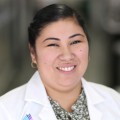 |
Roxana E. Mesías is a PhD Candidate at the Icahn School of Medicine at Mount Sinai (ISMMS) in the Department of Neuroscience. She was born in Guayaquil, Ecuador and moved to New York City when she was a high school sophomore. She earned her BA in biochemistry from Wheaton College in Massachusetts as a Posse Foundation Scholar. While at Wheaton, she organized the college’s first science conference, “Taking the Next Step!”, where local high school, college, and university students attended workshops and networked with STEM professionals. The conference encouraged all students, but especially minority students, to become involved in STEM careers. Since then, Roxi has been involved in activities where she can mentor younger students pursuing STEM careers. Roxi was the recipient of the McNair Scholars Program Fellowship at the University of New Hampshire and the Wheaton College Adams Fellowship for Professional Development, which exposed her to cutting-edge research at top academic institutions. Currently, under the mentorship of Dr. George Huntley, Roxi’s thesis project is examining the effect of an autism-related gene mutation on the development of neural circuits and their supported behaviors in mice, with the goal of guiding future therapies. This work is supported by an Autism Speaks Weatherstone Pre-Doctoral Fellowship. After completing her PhD, Roxi intends to pursue a post-doctoral fellowship, and ultimately obtain a position in academia where she aims to have an active research program in developmental neuroscience, while teaching and mentoring diverse students. |
 |
Keila Natalia Miles is a fifth-year PhD candidate in the Neuroscience Graduate Program at the University of Cincinnati. Keila received her BS in biomedical science from Oakwood University in Huntsville, AL. Most notably, she was vice president of the Alpha Chi Honor Society, an organization that was comprised of the institutions top 10% of scholastically achieving students. Throughout her undergraduate tenure, she participated in several summer research programs such as Short-Term Research Experience for Underrepresented Persons (STEP-UP) and Research Experience for Undergraduates (REU) at a plethora of institutions across the United States. Currently, her research interests center on dietary intervention and rare metabolic diseases. She conducts her dissertation research under the tutelage of Dr. Matthew Skelton at Cincinnati Children’s Hospital, investigating the effect of ketosis on Creatine Transporter deficiency. Keila’s long-term career goal is to be involved in science policy and advocacy. These careers are most appealing to her because they highlight the importance of science promotion and education and provide a direct link to impact change in underrepresented communities in STEM. This career trajectory will allow her to apply her translational research knowledge to policy making in an effort to enact reform in science education and funding allocation. Keila is committed to science advocacy and awareness, evidenced by her involvement in the University of Cincinnati’s Society for Advancing Chicano’s/Hispanics and Native Americans in Science (SACNAS) (former President, current Social Media Chair). Additionally, she has served as the coordinator for Brain Awareness Week at her home institution. |
 |
Anthony Monroe is a first-year PhD student in immunology and Fuqua School of Business MBA dual-degree student at Duke University. He obtained his bachelor’s degree in animal science, microbiology/immunology, oceanography and creative writing at Cornell University. As an undergraduate, he participated in the Hunter R. Rawlings Presidential Research Scholars program which allowed him to participate in cutting edge research at the Cornell School of Veterinary Medicine, working with Dr. James Casey on fish rhabdoviruses and turtle fibropapilloma herpes viruses. Through numerous years of research in the Casey lab and summer research programs at University of Miami and Harvard University, Anthony found his interest in virology, immunology and vaccinology. Anthony completed the Post-Baccalaureate Research Education Program at Icahn School of Medicine at Mount Sinai in New York City, working with Dr. Benjamin Chen on HIV and its interaction with host cell mechanisms for entry into cells. He is currently working on HIV vaccine antibody response and ways to access correlates of protection during vaccination and how to improve immunogen design for more effective HIV vaccine regimens in the laboratory of Dr. Georgia Tomaras. A long-term career goal is to effectively bridge the gap between industry and academic science, eventually building a collaborative research institute. Anthony is also passionate about LGBTQ inclusionary efforts in academics and industry and hopes to build a LGBTQ cooperative coalition amongst industry and academic institutions to foster a more welcoming environment. |
 |
Ryan Natividad is a first-year doctor of public health (DrPH) student in the Department of Epidemiology at the Colorado School of Public Health, and he is well-versed in public health and health policy. He is currently a Research Assistant with SEARCH for Diabetes in Youth, a longitudinal, multisite study aimed at understanding diabetes among children and young adults in the United States. He is also a Social Epidemiologist in the Office of Health Equity at the Colorado Department of Public Health and Environment, involved with developing county-level health equity profiles in the state of Colorado. Earlier in his public health career, Ryan assessed the impact of community health worker interventions in reducing cardiovascular disease and hypertension among Filipino Americans at New York University Langone Medical Center, Center for the Study of Asian American Health. Transitioning to health policy, he implemented and advocated for culturally and linguistically appropriate healthy eating, active living, and built environment programs and policies in various Asian American communities in New York City. His research interest lies in the intersections of public health, urban planning, and health/public policy and how these fields address the social and physical determinants of community and individual health through place-based, environmental policy approaches. Ryan has a BA in anthropology from Columbia University and an MPP from University of California, Riverside School of Public Policy. In addition, he is an alumnus of leadership programs of Coro New York Leadership Center and the Asian Pacific Islander American Health Forum. |
 |
Jennifer Patritti Cram is a second-year doctoral student in the Neuroscience Graduate Program at the University of Cincinnati. Jennifer earned her bachelor of science degree in neuroscience at The Ohio State University (OSU) graduating with research distinction. As an undergraduate, Jennifer worked with Dr. Helen Chamberlin in the department of Molecular Genetics studying tumor suppressor genes in model organisms C. elegans and C. briggsae. Jennifer has been involved in the efforts of retaining minority students in sciences as founding president of the SACNAS Chapter at OSU, as a scholar in Louis Stokes Alliance for Minority Participation program, by participating in various national conferences, and by leading discussions at the Ohio Latino Education Summit about building science networks for Latino students. Jennifer is now an NIH predoctoral training fellow working in Dr. Nancy Ratner’s lab at Cincinnati Children’s Hospital studying the signaling mechanisms of peripheral nerve tumor formation in neurofibromatosis type 1 using mouse models. As for her future career plans, Jennifer is interested in pursuing a post-doc in either academia or industry. Most importantly, she is interested in maintaining her involvement in retaining and increasing minority participation in STEM. |
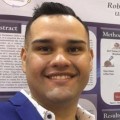 |
|
 |
Adrian Rivera Reyes is a fourth-year PhD candidate in the Cancer Biology program of the Cell and Molecular Biology Graduate Group at the University of Pennsylvania (Penn). He is doing his thesis research under the guidance of Dr. T.S. Karin Eisinger, working to determine the molecular mechanisms by which the Hippo signaling pathway regulates soft tissue sarcoma (STS) proliferation. He seeks to determine the utility of this pathway for the elucidation of novel biomarkers and therapeutic approaches to treat STS. Adrian is also the co-president of the Penn Science Policy and Diplomacy Group (PSPDG) and is involved in multiple affinity groups at Penn, as well as recruiting trainees with diverse backgrounds. He obtained his BS in cell and molecular biology from the University of Puerto Rico (UPR), Rio Piedras. During his undergraduate education, he was a Minority Access to Research Careers (MARC) fellow, an NIH-funded program that provides support to underrepresented undergraduate students in biomedical sciences and prepares them for PhD training. He performed his undergraduate thesis research under the guidance of Dr. Pablo E. Vivas-Mejía at the Comprehensive Cancer Center of the UPR, Medical Sciences Campus. Adrian’s career goals are to serve as a leader in biomedical research who actively participates in the recruitment and retaining of diversity trainees in higher education, as well as pursuing a science policy fellowship to establish a career in science policy. |
 |
|
 |
Violeta J. Rodriguez is a first-year doctoral student in Clinical Psychology at the University of Georgia. Violeta’s previous work has focused on symptoms of psychopathology among people living with HIV and developmental outcomes of HIV-exposed infants from low-income settings. Prior to pursuing her PhD, Violeta obtained a master of science in education in research, measurement, and evaluation at the University of Miami while working in a research capacity in the implementation of HIV prevention programs in South Africa, Zambia, and Argentina, which stimulated her interest in cross-cultural and multicultural research. Her long-term research interests involve improving the measurement of constructs in the context of family science to facilitate the inclusion and adequate assessment of socioeconomically, ethnically and racially diverse families to better understand the effect of parent psychopathology on typical or atypical child development. After completing her internship and PhD, Violeta hopes to pursue a career in academia. |
 |
Luis Alexis Rodríguez-Cruz graduated with a bachelor’s degree in biology with a sub-concentration in biotechnology from the University of Puerto Rico at Ponce. Currently, he is a PhD student in food systems at the University of Vermont (UVM) and is expecting his master’s (May 2018) in food science and technology from the University of Puerto Rico at Mayagüez (UPRM). For his thesis, he performed an assessment of food safety practice among fishermen in Western Puerto Rico, a baseline study for the future development of educational materials and workshops for that community. At UVM, he is working to develop a research project in Puerto Rico focused on understanding how farmer perceptions of climate change relate to their response to Hurricane Maria, and how this influences adaptation behaviors at the farm level. During his master’s, he worked with the Extension Service of UPRM assessing barriers and motivators to healthy eating and physical activity among Puerto Rican children to develop culturally-sensitive educational materials. As an undergraduate, Luis Alexis did research in plant science with the Tropical Agricultural Research Service of the United States Department of Agriculture, and in biomedical sciences at the Ponce School of Medicine, which gave him a strong background in the natural sciences. His interests are in the intersection of climate change, food security, public policy, perceptions, behaviors, and food culture. Luis Alexis is extremely passionate about generating meaningful information that becomes accessible to communities. In his leisure time, he enjoys cooking, reading, and writing. |
 |
Ciorana Roman Ortiz is a PhD candidate in the Neuroscience Department at the Icahn School of Medicine at Mount Sinai. Her research focus is to further understand how neural circuits encode emotional memories and how faulty brain circuits can result in psychiatric disorders. She obtained her BS in health sciences from the University of Puerto Rico Medical Sciences Campus. During this time, she worked in Dr. Gregory Quirk’s lab characterizing the structures involved in the learning and extinction of passive versus active fear responses. Early in her career she participated in the Summer Program in Neuroscience Ethics, and Survival (SPINES) at Marine Biology Laboratories, where she met an amazing group of talented faculty and peers that inspired and encouraged her to continue in her academic path. Since completing this program, she has been passionate about promoting diversity in neuroscience through mentoring and outreach. Currently, Ciorana works in Dr. Roger Clem’s laboratory, where she utilizes molecular and electrophysiological approaches to study how specific GABAergic populations modulate behavior during fear conditioning and extinction and how changes in inhibitory transmission support these forms of learning. Her long-term goal is to establish her own research lab, ideally in her home country, where she can promote neuroscience and perform ground-breaking research in emotional brain function. |
 |
Jesus Antonio Romo is a fourth-year doctoral candidate in cell and molecular biology (microbiology and immunology track) at The University of Texas at San Antonio (UTSA). He is originally from Monclova, Coahuila, Mexico. After obtaining a bachelor of science with an emphasis in microbiology and immunology, Jesus then went on to pursue his master’s degree conducting research in a molecular microbiology laboratory focused on the pathogenesis of the bacterium Borrelia burgdorferi where he worked on polyamine uptake and utilization. He has also been the STEM microbiology outreach coordinator for the CEIG outreach component at UTSA for since 2010. Jesus also held a faculty position at Galen College of Nursing in San Antonio, Texas where he won the “making a difference in teaching” award while teaching medical microbiology and anatomy and physiology both face-to-face and online. Currently, he is finishing his PhD (spring 2018) at UTSA working in a medical mycology laboratory with the fungus Candida albicans studying biofilm formation, drug discovery and development. Jesus’ passions include teaching, outreach, research, and science communication. Apart from multiple conference travel and presentation awards, Jesus is also a 3MT winner and Scientific Teaching Fellow through the American Society for Microbiology (ASM). His overall career goal is to have his own research lab as well as develop new and innovative ways to enhance science education in the classroom. He is interested in teaching at a primarily undergraduate research institution where he can develop the STEM programs at the institution while also helping mentor minorities. |
 |
|
 |
Angel J. Santiago-Lopez is a PhD student in the Interdisciplinary Bioengineering Program and the School of Chemical and Biomolecular Engineering at Georgia Tech. Prior to his doctoral studies, Angel graduated with a BS in chemical engineering from the University of Puerto Rico – Mayaguez (UPRM). At UPRM, Angel worked as a RISE-2BEST Scholar in the laboratory of Dr. Enrique Melendez where he developed a single-use biosensor for the electrochemical monitoring of DNA-organometallic biomolecular interactions. During his undergraduate studies, Angel also conducted research internships at Georgia Tech and MIT with Dr. L. Andrew Lyon and Dr. Robert Langer, respectively. Currently, Angel is developing gene therapy strategies for neural regeneration and neuroprotection under the guidance of Dr. Robert Gross. His professional goals include establishing a research program in translational bioengineering and promoting diversity within STEM through outreach and mentoring. Angel is a recipient of the NSF Graduate Research Fellowship and Georgia Tech’s Presidential Fellowship. |
 |
Mirelis Santos-Cancel is a fourth-year doctoral candidate in the Department of Chemistry at the University of Cincinnati (UC), Ohio. She obtained her BS and MSc in chemistry from the University of Puerto Rico, Mayaguez. During this time, Mirelis also worked as a lecturer at Columbia Central University in Yauco, Puerto Rico, teaching organic and general chemistry. After graduating, Mirelis was awarded the Meyerhoff and the Chemistry and Biology Interface (CBI) Fellowships to continue PhD studies at the University of Maryland, Baltimore County (UMBC) under the mentorship of Dr. Ryan J. White, who was recently appointed as Ohio Eminent Scholar and moved the research facilities to UC. Mirelis’ research is interdisciplinary and is focused on the development of cutting-edge electrochemical probes for the detection and quantification of adenosine triphosphate (ATP) and elucidate the of this molecule role in brain processes with enhanced spatiotemporal resolution and high specificity. Also, Mirelis has published in high-impact scientific journals and given oral and poster presentations at national conferences. Her career aspirations, in short-term, are to obtain a Post-Doctoral position with the ultimate goal of becoming a principal investigator. |
 |
Yvett Sosa is currently a second-year PhD student at the Albert Einstein College of Medicine. Her research, in the lab of Dr. Myles Akabas, is centered on characterizing and targeting malaria parasite purine uptake pathways to generate novel antimalarial drugs. Yvett holds a master’s of science in nutrition from Columbia University, where she studied the effect of plasma leptin on taste responsiveness to sweeteners in mice. She received her B.A in biology and art from Colgate University, where she did research on the effects of nutrient addition to the rainforest canopy biodiversity in Costa Rica. She has always enjoyed doing scientific research and aspires to be a successful scientist. |



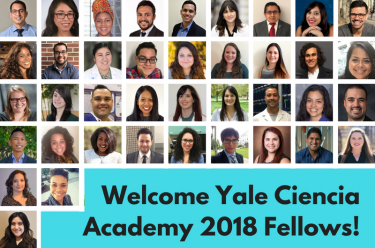
 Brittnie Bloom is a first-year global health PhD student in the Joint-Doctoral Program though the University of California San Diego (UCSD) and San Diego State University (SDSU). Brittnie is proud to be the first person in her family to attend college and received her bachelor’s degree as a Ronald E. McNair Scholar from SDSU majoring in psychology and English with a minor in counseling and social change. She received her master of science in public health from the University of California Los Angeles (UCLA) in 2014, where she volunteered for a handful of student-led efforts to increase education about reproductive health, reduce sexual assault, and increase bystander awareness. Before starting her PhD program, she served as a first responder for two years for survivors of sexual assault with San Diego’s Sexual Assault Response Team. As a PhD student, her primary research interests surround topics related to sexual assault and intimate partner violence in specific populations in the US and abroad, such as university students and seekers of healthcare services. She hopes to examine how community and policy interventions can impact health outcomes, specifically of women and vulnerable/disadvantaged populations. In her career, she plans to combine her passion for research with her conviction to remain engaged in the community through nonprofit organizations and volunteering, ultimately wanting to make a tangible impact on issues surrounding equity and reducing health disparities in the US and throughout the world.
Brittnie Bloom is a first-year global health PhD student in the Joint-Doctoral Program though the University of California San Diego (UCSD) and San Diego State University (SDSU). Brittnie is proud to be the first person in her family to attend college and received her bachelor’s degree as a Ronald E. McNair Scholar from SDSU majoring in psychology and English with a minor in counseling and social change. She received her master of science in public health from the University of California Los Angeles (UCLA) in 2014, where she volunteered for a handful of student-led efforts to increase education about reproductive health, reduce sexual assault, and increase bystander awareness. Before starting her PhD program, she served as a first responder for two years for survivors of sexual assault with San Diego’s Sexual Assault Response Team. As a PhD student, her primary research interests surround topics related to sexual assault and intimate partner violence in specific populations in the US and abroad, such as university students and seekers of healthcare services. She hopes to examine how community and policy interventions can impact health outcomes, specifically of women and vulnerable/disadvantaged populations. In her career, she plans to combine her passion for research with her conviction to remain engaged in the community through nonprofit organizations and volunteering, ultimately wanting to make a tangible impact on issues surrounding equity and reducing health disparities in the US and throughout the world.




